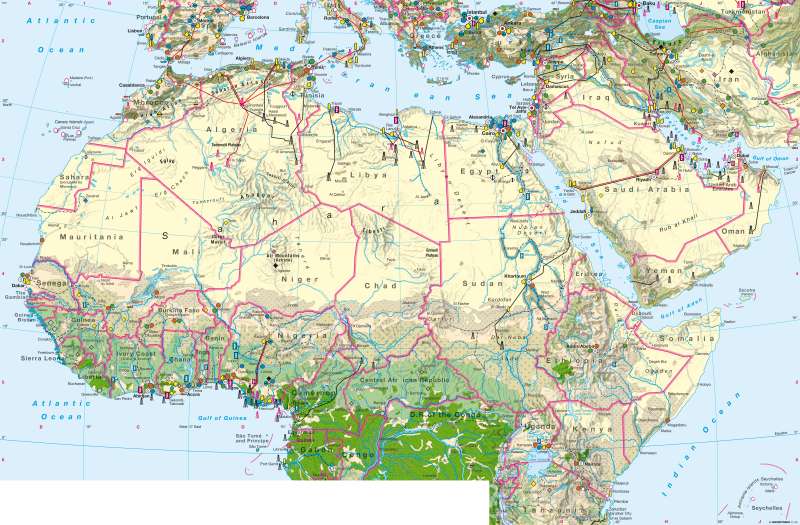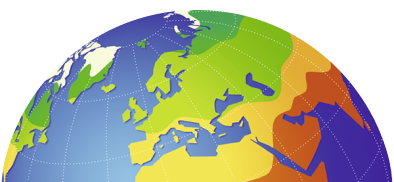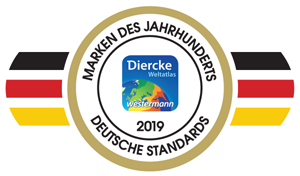Northern Africa — Economy
Northern Africa - Economy
978-3-14-100790-9 | Page 166 | Ill. 1

Information
Both Northern Africa and the Middle East exhibit diverse economic structures.North Africa
The network of oil and gas pipelines in North Africa and the numerous symbols indicating mineral deposits, oil refineries and chemical industry along the North African Coast indicate the significance of these industries for the national economy, above all in Algeria and Libya, but also in Tunisia and Egypt. These countries belong to the group of so-called "middle income oil exporting nations". These countries have already achieved economically significant industrialisation — ranging from primary industries to the production of consumer goods.
In Morocco — which commands over two thirds of the known world phosphate reserves — the process of industrialisation began with phosphate production. Today the country is the world's third biggest producer of phosphate. Coal, mineral oil and natural gas, but also lead, copper and iron ore belong to the many natural resources of Morocco. Further significant branches of industry are metal processing, chemicals, foodstuffs, textiles, leather and consumer goods. In addition to citrus fruit, various vegetables and wine grapes, but above all cork oak, are cultivated for export. However, as in Tunisia, the tourism industry is of much greater significance as it generates one third of the country's total revenue. In recent years, in both countries but above all in Morocco, there has been a decline in the small trade sector, which follows the tradition of oriental trades.
Gulf States
Mineral oil drilling and natural gas production are also significant economical factors in the Gulf States, including Iraq, Iran and Kuwait. Half of the world's total oil and natural gas reserves are located in this region. Attempts are however increasingly being made to diversify this economical structure. Oil refineries and petrochemical industries are closely tied in with the drilling of mineral oil. Natural gas provides the basis for energy intensive industries such as metal smelting — but also desalination plants, which are essential for human survival in the Gulf region. Considerable investments have also been made in the service sector e.g. in Dubai.
Israel
Of all Mediterranean countries Israel has the strongest economy. Its industries range from export-oriented irrigation farming and high-tech industries right through to tourism. Phosphate and salt deposits in central Negev and on the southern shores of the Dead Sea serve the chemical industries based there. Highly specialised processing industries have been established in the seaport of Haifa and in Greater Tel Aviv. Heavy industry is predominantly found in the Haifa region. Other industrial locations are dominated by the textile industry with numerous plants based in smaller cities. The energy supply is dependent on the import of crude oil, which reaches the Mediterranean port by tanker but also by means of an oil pipeline, which runs from the port of Eilat on the Red Sea via Ashdod to Haifa.
M. Felsch, B. Wiesenicht; Ü: J. Moar,M. Dahl




